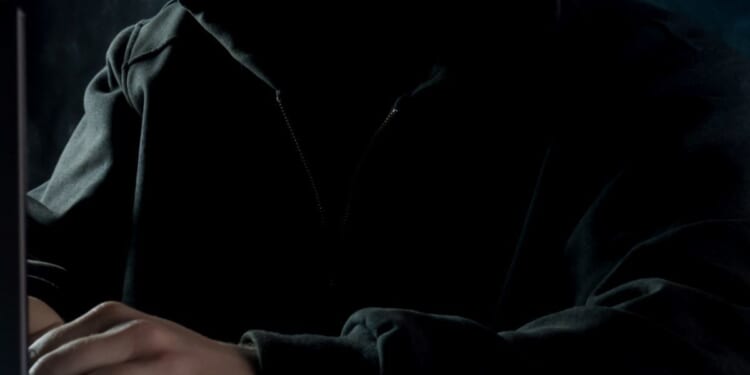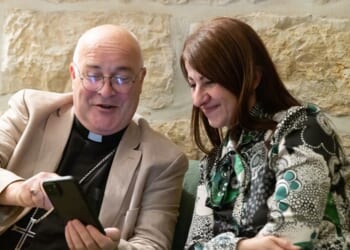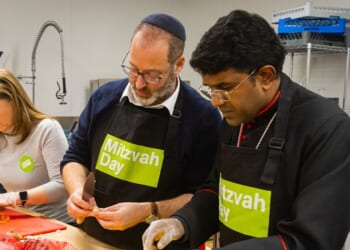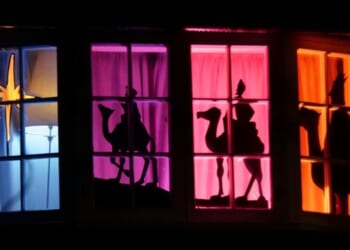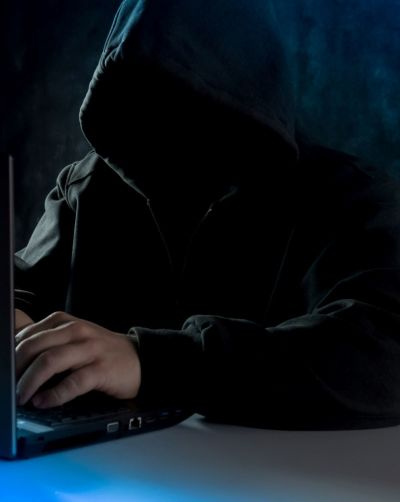
On Halloween night in 1976, researchers ran an experiment that feels almost poetic in what it reveals about human nature. More than a thousand trick-or-treaters showed up at a house where an adult greeted them with a simple instruction: “Please take just one piece of candy.”
Next to the candy bowl sat another one, this one filled with money. Hidden observers watched to see what the children would do. The researchers manipulated two important variables:
1. Anonymity: Some kids were asked their names and addresses before approaching the candy bowl. Others were masked and nameless.
2. Group size: Some came alone. Others came in groups.
Perhaps predictably, the study found significantly more stealing under conditions of anonymity and in the presence of a group. Children who were alone and whose identities were known stole candy only 7.5% of the time. Children who were masked and in a group stole 57.7% of the time. And in one particularly extreme variation (where a group remained anonymous but one child was told they’d be responsible for the group’s actions) the transgression rate shot up to 80%.
The results supported what psychologists call deindividuation — the idea that when people lose their sense of personal identity and self-awareness, they’re more likely to act out impulses they’d normally restrain. Anonymity, in other words, can liberate the behavior we’d usually be ashamed to own.
This isn’t an isolated finding. In 1969, Stanford psychologist Philip Zimbardo conducted a similar study with female students. Half wore hoods over their heads; the other half wore name tags. Each was told to administer a (fake) electric shock to a “learner.” The hooded girls delivered shocks twice as long as those whose identities were known—and they reported feeling less responsible for their actions.
Across decades and contexts, the results echo the same refrain: when we hide our faces, we’re more prone to lose our consciences
I’ve been thinking about that a lot lately, especially as I watch what passes for “dialogue” online. The rise of anonymous troll accounts has unleashed a kind of deranged cruelty that would almost never happen in person. I’ve seen it from all sides — transactivists, Groypers, Webbonites, and countless other keyboard cowards hurling venom they’d never have the audacity to say to anyone’s face.
Every time I get a misogynistic or sexually degrading message from one of these faceless accounts, my husband shakes his head and says, “They’d never say that to your face.” He’s right. But more than that, they’d never say it showing their face either. And that’s the problem. I said as much on X the other day. Suffice to say, people did not agree.
I half-jokingly mused that maybe anonymous accounts shouldn’t exist, that if you don’t have the courage to stand by your opinions in public, why should anyone take them seriously? Wouldn’t it be glorious, I wondered, if for just one day every anonymous account were unmasked?
Within minutes, the outrage poured in.
I was accused of insensitivity to abuse survivors, of endangering psychologists, teachers, and others who might face retaliation for speaking freely. “Haven’t you heard of doxxing?” they scolded. “Do you want people to lose their jobs?”
Here’s the thing: I actually do understand that fear. I’ve lived it. I’ve been doxxed. I’ve lost my job for telling the truth. I know what it’s like to stand in that fire. And my heart is not to shame anyone out of the reasonable boundaries they need to feel safe. There are absolutely times and places where anonymity protects the vulnerable, shelters the abused, and allows for honesty that might otherwise be impossible. I honor that.
But I also want to gently press on this: When everyone retreats into the shadows, afraid of being seen or counted, the bullies win. When terror dictates who speaks and who stays silent, the moral cowards inherit the microphone. And while I understand why some people feel they need the mask, I also believe we’re being slowly trained to live behind it, to confuse safety with silence and discretion with disengagement.
The only solution I know is prayerful, measured resistance whenever possible.
I realize I need to tread very carefully here, as my heart is to help, not harm. So hear me clearly: I’m not condemning anonymity in those uniquely sensitive contexts. I’m trying to hold painfully difficult truths in tension — and to encourage people, when they feel strong enough, to risk dipping even a toe into the water of being known.
In my decade of advocacy for women, I’ve heard more stories of harm, sexual assault, and trauma than I can count. Stories that, when told, have the power to crack open the door to change. And if told together, if brought into the light, they could form a forcefield of truth strong enough to demand it.
But almost none of these women feel able to sign their names to their stories.
And I understand that. They have good reason to fear disbelief, mockery, retaliation. They’re right to protect their hearts, their homes, and their families from real danger.
Still, it’s hard to carry the weight of so many silenced truths, knowing that real transformation almost always begins with one person brave enough to go first. It’s very often the solitary soul who risks everything for the sake of others who ends up liberating a multitude.
Most of the people driving the doxxing campaigns and online terror mobs are anonymous. (Tons of them are bots, too, but that’s a subject for another blog.) And if their true identities were revealed, I suspect we’d find they’re not powerful or intimidating at all, but ordinary men and women, quietly festering with rage that leaks into every part of their lives. Disenfranchised doctors. Pastors. Janitors. Neighbors. People who’ve forgotten what it feels like to be accountable for the words they unleash.
Some have tried to justify anonymity by invoking The Federalist Papers: “The Founders used pen names,” they say, “so it must be fine.”
But that’s not the same thing. The Founders weren’t afraid of being known; they were already public figures. They used pseudonyms not to conceal cowardice, but to strip away bias so their arguments could be judged on merit. They weren’t hiding from the mob. They were trying to rise above it.
That’s not what’s happening online today.
Our culture is drowning in anonymous rage, and it’s corroding our collective soul and terrifying the reasonable into the shadows.
There’s a time for masks, but if we never take them off, we lose something important about our humanity. And maybe that’s what this whole experiment, ancient or modern, is really about: finding the courage to be seen in a world that keeps telling us to hide. Because at the end of the day, evil doesn’t need everyone to be cruel; it just needs everyone to be silent and afraid.
Originally published at Honest to Goodness.
Kaeley Harms, co-founder of Hands Across the Aisle Women’s Coalition, is a Christian feminist who rarely fits into boxes. She is a truth teller, envelope pusher, Jesus follower, abuse survivor, writer, wife, mom, and lover of words aptly spoken.

